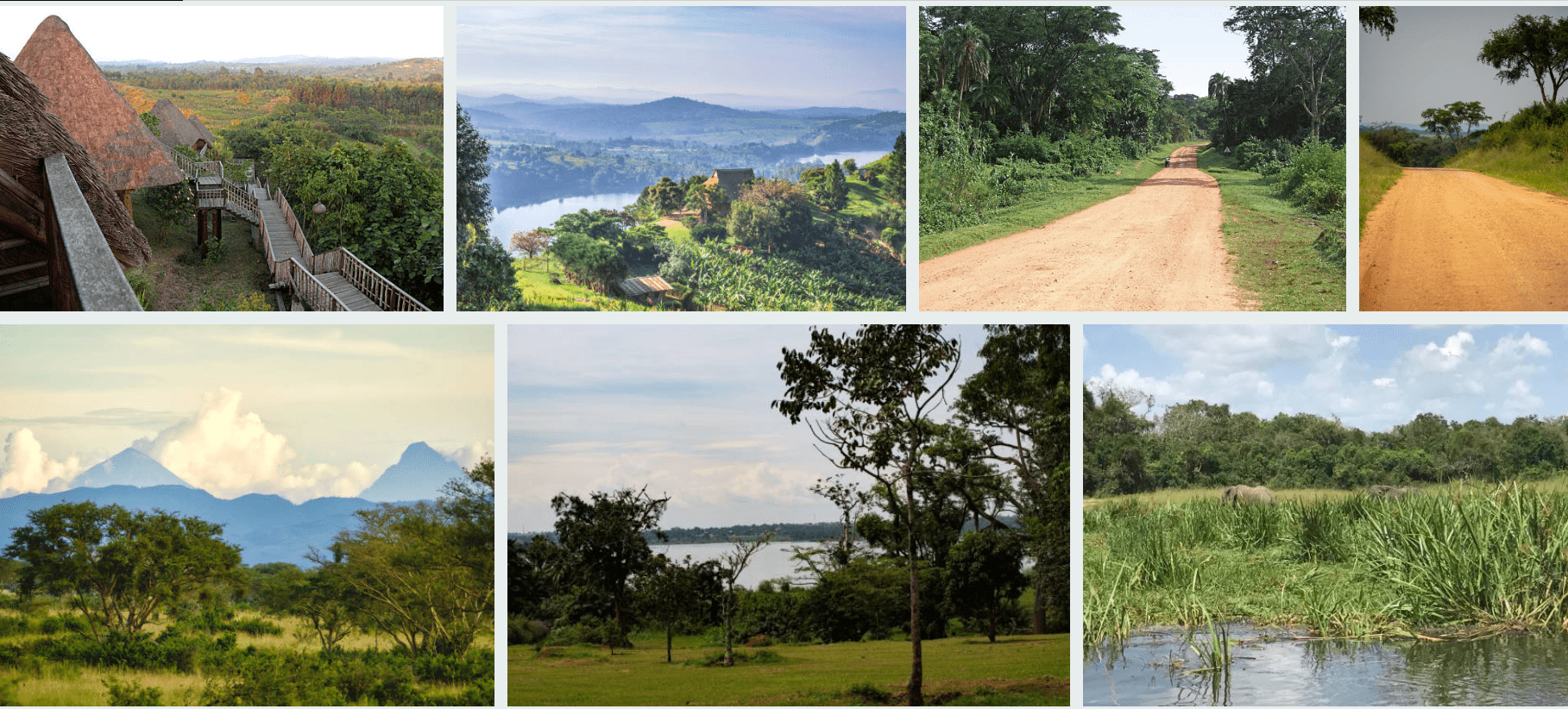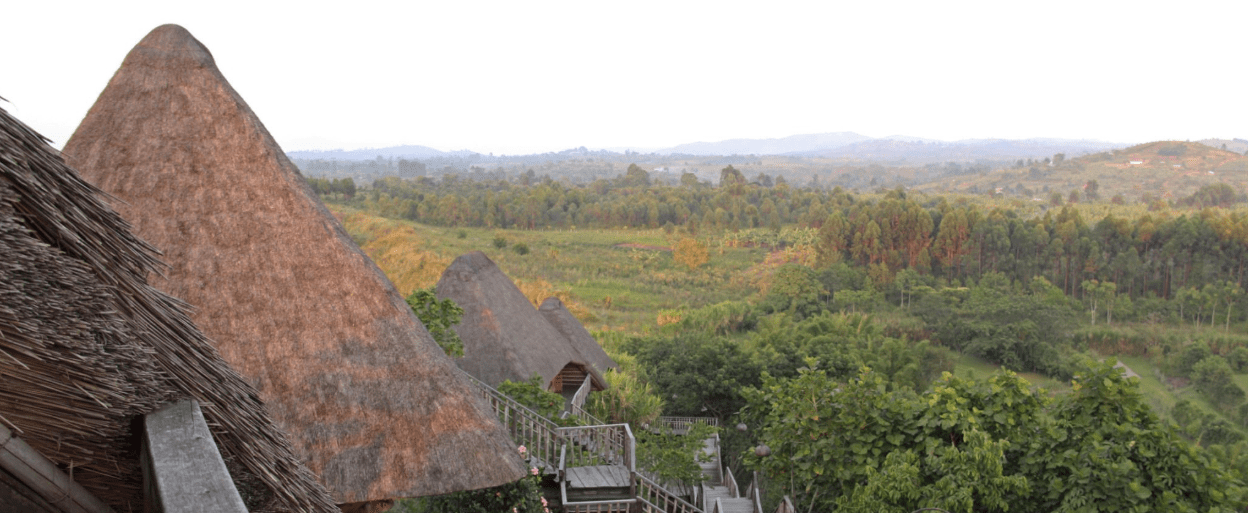Uganda Eco-Tourism – Sustainable Travel: A Journey Towards Conservation and Empowerment
Hot Eco-Tourism – Sustainable Travel is not just a trend; it is a movement reshaping the way we explore the world while preserving its natural beauty. Uganda, often referred to as the “Pearl of Africa,” stands at the forefront of this movement, offering travelers an opportunity to experience breathtaking landscapes, diverse wildlife, and vibrant cultures—all while supporting conservation and community development.
Why Uganda is a Leader in Sustainable Travel

Uganda’s commitment to Hot Eco-Tourism – Sustainable Travel is evident in its vast network of national parks, community-based tourism initiatives, and eco-friendly lodges. Unlike mass tourism, which often exploits natural resources, Uganda’s approach ensures that tourism benefits both the environment and local communities.
1. Pristine National Parks and Wildlife Reserves
Uganda is home to some of Africa’s most spectacular national parks, including:
Bwindi Impenetrable National Park – A UNESCO World Heritage Site and sanctuary for endangered mountain gorillas.
Queen Elizabeth National Park – Famous for tree-climbing lions and diverse ecosystems.
Murchison Falls National Park – Where the Nile River explodes through a narrow gorge, creating a thunderous waterfall.
Kibale National Park – A primate paradise with over 13 species, including chimpanzees.
These parks are managed with strict conservation policies, ensuring that wildlife thrives while visitors enjoy ethical and low-impact tourism.
2. Community-Based Tourism Initiatives
One of the pillars of Hot Eco-Tourism – Sustainable Travel in Uganda is community involvement. Local communities are not just bystanders; they are active participants in conservation and tourism. Projects like:
The Batwa Cultural Experience – Indigenous Batwa people share their forest heritage and traditions.
Rwenzori Trekking Services – Locally owned guiding services in the Rwenzori Mountains.
Bigodi Wetland Sanctuary – A community-run eco-tourism site supporting education and healthcare.
These initiatives ensure that tourism revenue directly benefits the people who live near these natural wonders.
3. Eco-Friendly Accommodations
Uganda boasts a growing number of eco-lodges and sustainable accommodations, such as:
Chobe Safari Lodge – Uses solar energy and supports local conservation projects.
Clouds Mountain Gorilla Lodge – Built with sustainable materials and employs local staff.
Eco-Embrace Lodges – Focuses on zero-waste policies and organic farming.
By staying in these lodges, travelers minimize their carbon footprint while contributing to Uganda’s green economy.
The Impact of Sustainable Travel in Uganda
1. Wildlife Conservation Success Stories
Uganda’s commitment to Hot Eco-Tourism – Sustainable Travel has led to remarkable conservation achievements:
Mountain Gorilla Population Growth – Once critically endangered, gorilla numbers have increased due to strict protection and responsible tourism.
Lion and Elephant Recovery – Anti-poaching efforts in parks like Queen Elizabeth have stabilized populations.
Bird-Watching Haven – With over 1,000 bird species, Uganda is a top birding destination, promoting eco-friendly bird tourism.
2. Empowering Local Communities
Tourism revenue supports:
Education – Schools built with tourism funds provide better opportunities for children.
Healthcare – Clinics in remote areas are funded by eco-tourism proceeds.
Women’s Empowerment – Many lodges and tour companies prioritize hiring and training women.
3. Combating Climate Change
Uganda’s forests and wetlands act as carbon sinks. By promoting Hot Eco-Tourism – Sustainable Travel, the country helps combat deforestation and promotes reforestation projects.
How You Can Be a Responsible Traveler in Uganda
To support Hot Eco-Tourism – Sustainable Travel, consider these practices:
✔ Choose Ethical Tour Operators – Book with companies that prioritize conservation and fair wages.
✔ Respect Wildlife – Maintain a safe distance from animals and avoid feeding them.
✔ Support Local Businesses – Buy crafts from community markets and eat at locally owned restaurants.
✔ Minimize Plastic Use – Carry a reusable water bottle and avoid single-use plastics.
✔ Leave No Trace – Follow the principle of taking only photos and leaving only footprints.
The Future of Uganda’s Eco-Tourism
Uganda’s model of Hot Eco-Tourism – Sustainable Travel proves that travel can be a force for good. By choosing sustainable options, visitors help protect endangered species, uplift communities, and preserve Uganda’s natural wonders for future generations.
As you plan your next adventure, remember that every responsible choice you make contributes to a brighter, greener future. Uganda awaits—not just as a destination, but as a partner in global conservation.
Travel Sustainably. Explore Consciously. Protect Uganda’s Legacy.

